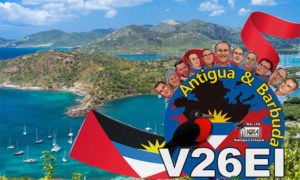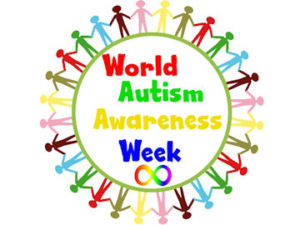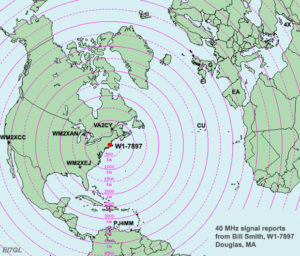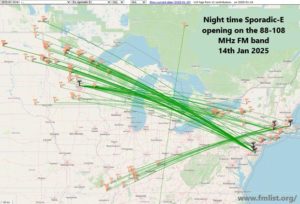Hurricane Watch Net Wraps Up Marathon Activation for Two Storms
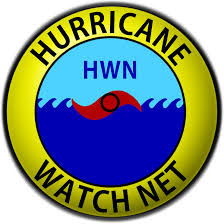
The Hurricane Watch Net (HWN) just stood down from another extended session — 71 hours of continuous operation — for Hurricane Paulette and Hurricane Sally. HWN Manager Bobby Graves, KB5HAV, said it seems like long activations such as these are happening all too often.
“I suppose Mother Nature hasn’t been getting the attention she desires,” Graves quipped.
The HWN activated on Sunday, September 13, at 2100 UTC on both 14.325 MHz and 7.268 MHz. During the opening hours, Graves said, the net lined up reporting stations on Bermuda for Hurricane Paulette, as the storm was heading their direction.
Hurricane Paulette made landfall the next morning at around 0900 UTC as a Category 1 hurricane, with sustained winds of 90 MPH. “We received numerous reports of widespread power and internet outages along with minor damage,” Graves recounted.
“Once we completed operations for Hurricane Paulette, we quickly shifted our focus to what was soon to be Hurricane Sally,” he continued. “And within an hour, Sally was upgraded to a Category 1 hurricane with sustained winds of 90 MPH.” Graves said Sally was “an unusual storm” that all but stalled, meandering 100 miles offshore for a while before finally heading toward shore. “This makes planning for an activation a nightmare,” he said. “One never knows when a storm will stall, slow, or speed up.”
Graves also said Sally was “a forecasting nightmare” with respect to its destination. “On Sunday, the forecast called for a Tuesday landfall southeast of New Orleans,” he said. “Then the track shifted to Bay Saint Louis on Tuesday evening. As time went on, the track kept shifting more to the east.”
Sally ultimately made landfall at Gulf Shores, Alabama, around 0945 U TC on Wednesday as a strong Category 2 hurricane with sustained winds of 105 MPH.
“After landfall, Sally was downgraded to a tropical storm, and we began calling for stations with reports of damage, storm surge, and flooding. The net officially secured operations at 2000 UTC on Wednesday.
But the Caribbean Basin has more in store during this hurricane season. “We are now keeping a close eye on Hurricane Teddy,” Graves said, noting that Bermuda could be affected by another hurricane by late Sunday night or early Monday morning. “Also, we are keeping a close eye on a system that seems to be getting better organized in the southwestern Gulf of Mexico.”
The next named will be Wilfred, and after that, storms will be designated using the Greek alphabet, starting with Alpha. “If we reach Alpha, it will be the second time in history to use that name,” Graves pointed out. “The first was in 2005.”
Graves expressed his appreciation to the amateur radio community for keeping 14.325 and 7.268 MHz clear during the activation.
If you have found a spelling error, please, notify us by selecting that text and pressing Ctrl+Enter.
